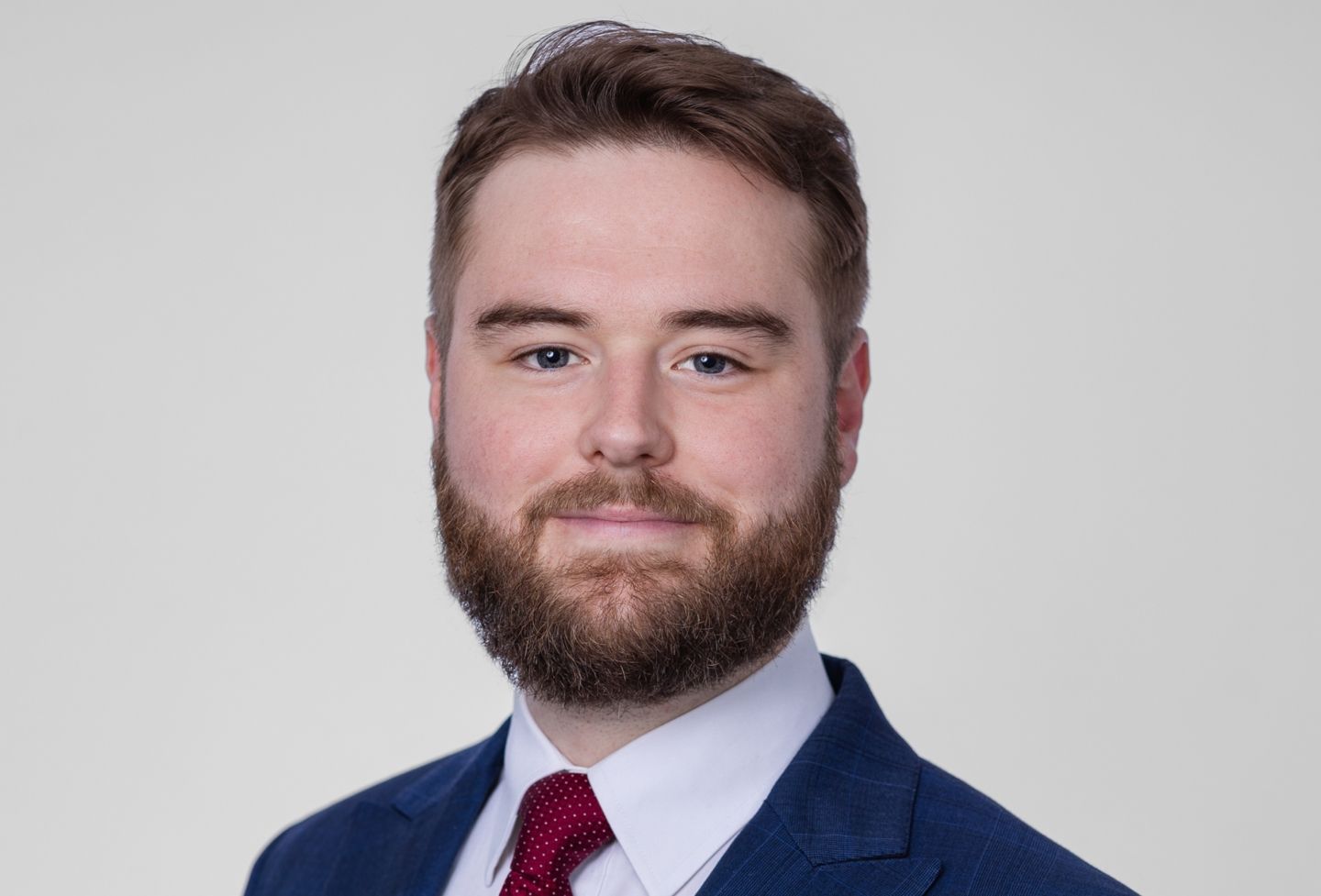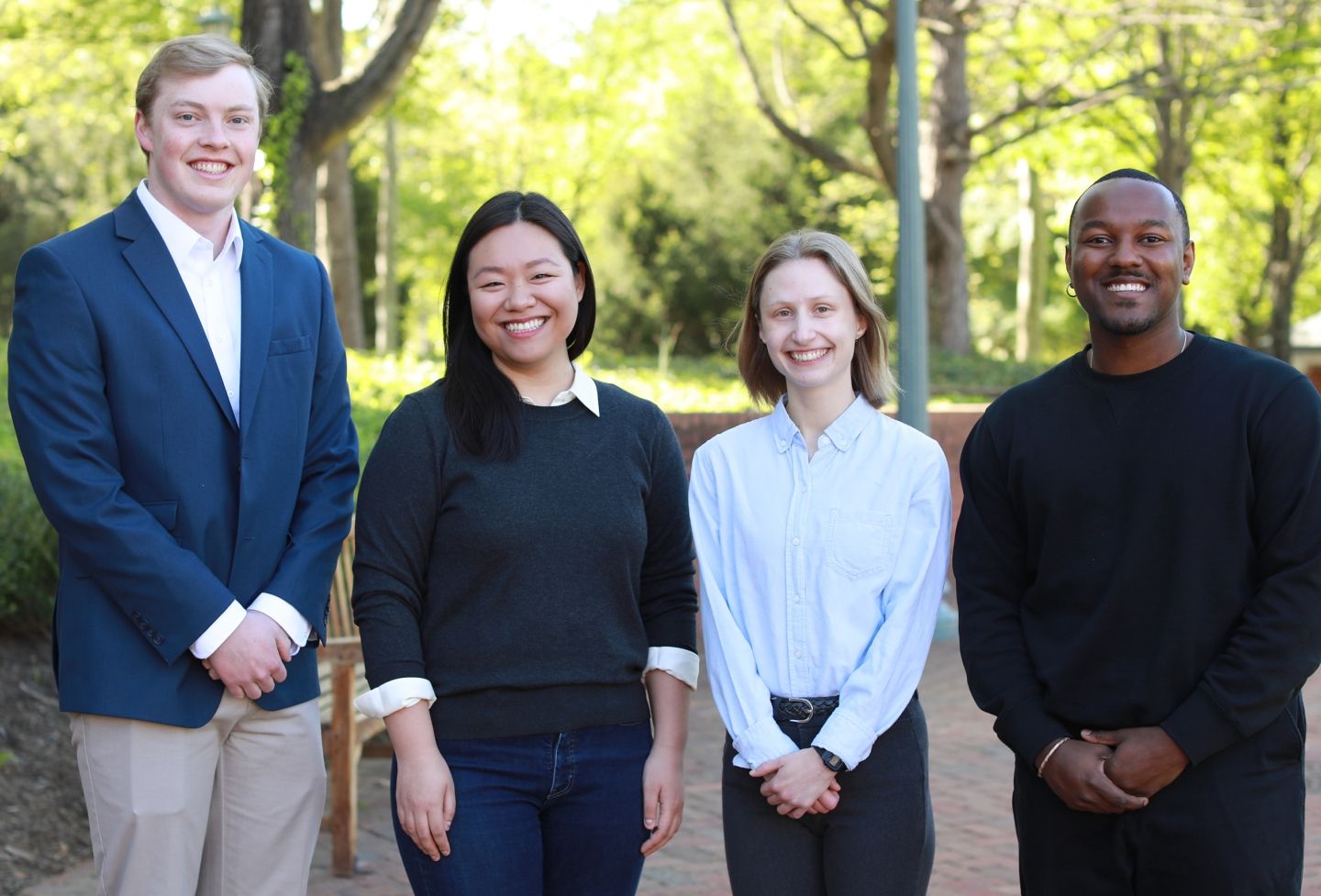ABA President-Elect Nominee Sees Greater Role for Lawyers in the Future

With politicians playing fast and loose with public funds and the accounting industry severely weakened by Enron and other scandals, the world will increasingly turn to lawyers to deal with issues presented by globalization because of the foundation in ethics and problem-solving they receive in law school, said American Bar Association president-elect nominee Robert L. Grey Jr. at a rescheduled Black Law Students Association Black History Month event held March 11 at the Law School.
When he assumes the presidency, Grey, a partner at Hunton & Williams in Richmond, Va., will be the second consecutive African-American to hold the top ABA post, after president-elect Dennis Archer steps down in August 2004. Grey recently chaired the ABA Committee on Research About the Future of the Legal Profession. Lawyers, Grey said in his talk, "The Future of the Legal Profession," bring special talents to any position they hold, but they could become more important as the global economy grows.
"I have learned more about the society that we live in than I think I could have in any other profession," he said. "I had no idea until I became immersed in this profession just how valuable lawyers are to society."
Yet, he pointed out, lawyers are regarded as being barely above used car salesman in the public's opinion, in contrast to the fact that the Supreme Court also scores very high marks in polls conducted by the ABA.
"Part of it is the mystique of the Court," he said — justices tend to be upstanding citizens who maintain a private home life. Thanks to justices like Lewis F. Powell Jr., the Court "has made a substantial difference in the way our society understands and respects the rule of law."
Grey asked his audience to consider their own opportunities as lawyers. "You are going to be viewed by society as someone in a position of power," he said. "So, what do you do with it?
"The leadership of this country is disproportionately represented by this profession," he added. "That is not a coincidence." Lawyers know how to absorb information, digest it, analyze it and put it in a form that is logically understandable to others, he said. With so many students going to law school, "now I think people see this is a complement to a career path."
Grey said with the injection of new kinds of students and teachers in law schools, "we're getting sort of a bleeding of disciplines … It's not the pure law anymore."
Grey said the approach offered by big accounting firms like Arthur Anderson lacked a key aspect lawyers are noted for — self-regulating ethics, including confidentiality and consideration of conflicts of interest. "No one else really self-regulates like lawyers do," he said, and now the accounting industry will be subject to more federal oversight because of their prior lack of regulation.
"Having that happen was a really big deal for law firms, for the legal profession," he said. "It would have been a different world if some of that stuff had not happened that way."
Lawyers offer companies problem solvers who will increasingly be accustomed to cross-disciplinary approaches in firms and businesses. European companies have adopted a business model wherein the lawyer acts as a counselor on issues of the industry itself. To keep up with their overseas counterparts, American lawyers will need to adapt to similar or newer business models, perhaps increasing their accessibility to clients in the future through such means as a 24/7 lawyers chat room, he said.
Grey also identified a "decline" in the way politics are handled "partly because lawyers have opted out." Politicians on one hand may claim they're not raising taxes, but on the other may raise fees for services instead. He said the pendulum will swing back and tax payers will want a more honest, candid and thoughtful analysis of the political process — one which lawyers can provide.
"That is the next wave of the future of this profession is to have greater involvement in politics," Grey said. "The lawyer-legislator, dating back to the guy who started this University, is coming back…and you need to be a part of it.
"After I finish talking you may think the world is on your shoulders. Quite frankly I think it is, but it's not a burden that's too heavy."
Grey recalled his own law school interview in the early 1970s. He thought he was dressing "sharp" in his platform shoes, double-knit blue-and-white bell-bottomed suit, and extra-wide tie, his head coiffed with an Afro and beard. As he got out of his yellow Beetle and started walking to his interview at Washington & Lee, he looked around at how others at the school — located in the Virginia countryside — were dressed, and thought "I wonder if I've got this right here." He and the dean were both in shock, he said, as they took in each other's appearances. The dean wore a three-button suit, thin tie, and wingtips.
"We sat down and had a very good conversation," he said. "He knew I was not ready for primetime, but he knew and looked past that.
Grey added, "It's not everything about what you look like … it's about who you are and it's about what you'll deliver."
After Grey graduated from Law School in 1976, firms weren't hiring minorities, he said. He worked for the National Labor Relations Board and in 1978 started his own practice in Richmond; since then he has been a partner at several firms.
Grey said rallying within a racial group is important because it brings pride, fulfillment, and a sense of family. "Take the lessons learned from that … and share that with other people," he said, emphasizing reaching out to others. "It is not about me, it is not about being black only, it's about trying to transform an environment."
He stressed the importance of stretching to meet new needs in the world and providing leadership to others. Although the job market is tight, new cottage industries like homeland security will need the services of lawyers. "When you settle down and think about what your opportunities are, they are as expansive as they've ever been.
"No one comes to the table with as much to offer in terms of what you can deliver as you do."
Founded in 1819, the University of Virginia School of Law is the second-oldest continuously operating law school in the nation. Consistently ranked among the top law schools, Virginia is a world-renowned training ground for distinguished lawyers and public servants, instilling in them a commitment to leadership, integrity and community service.


